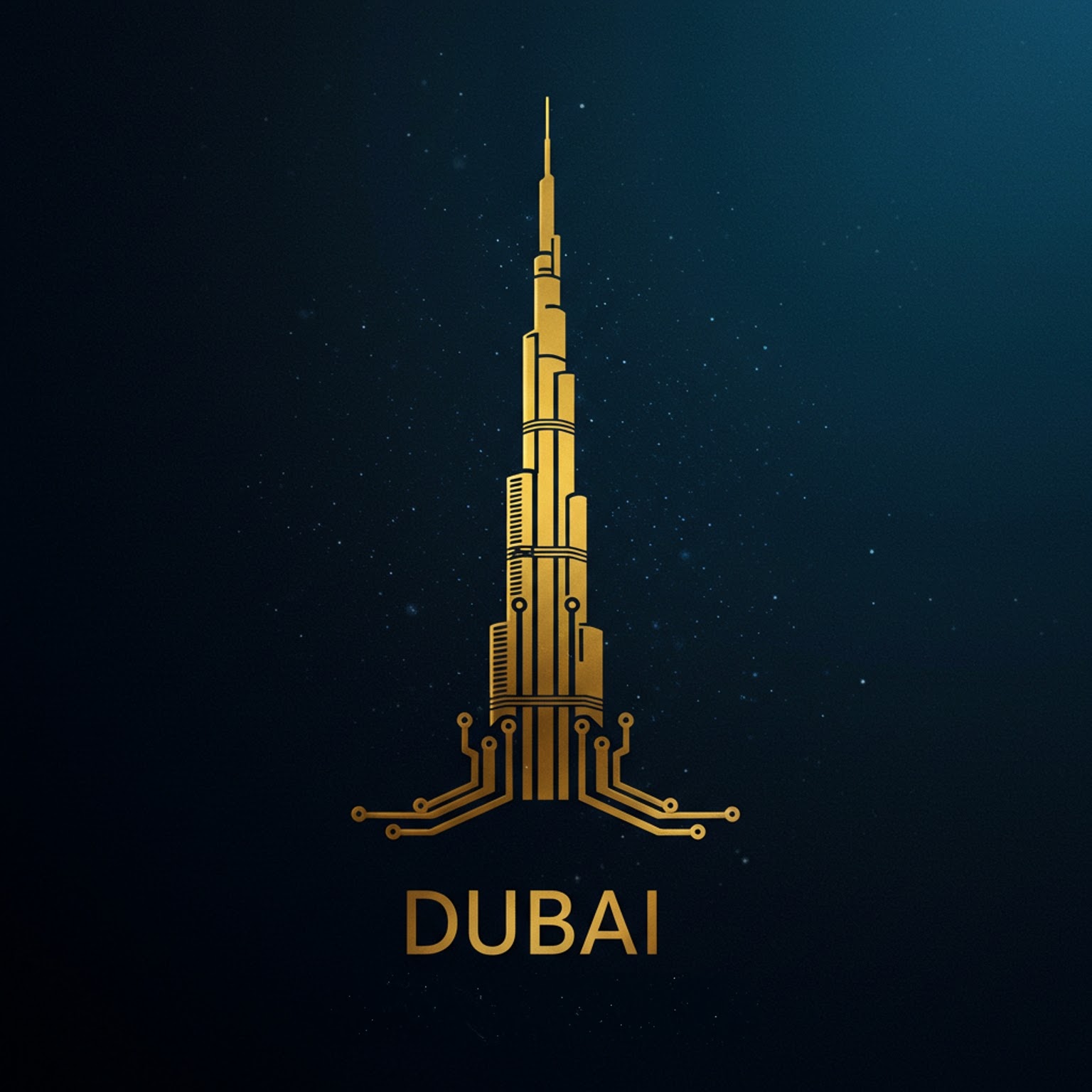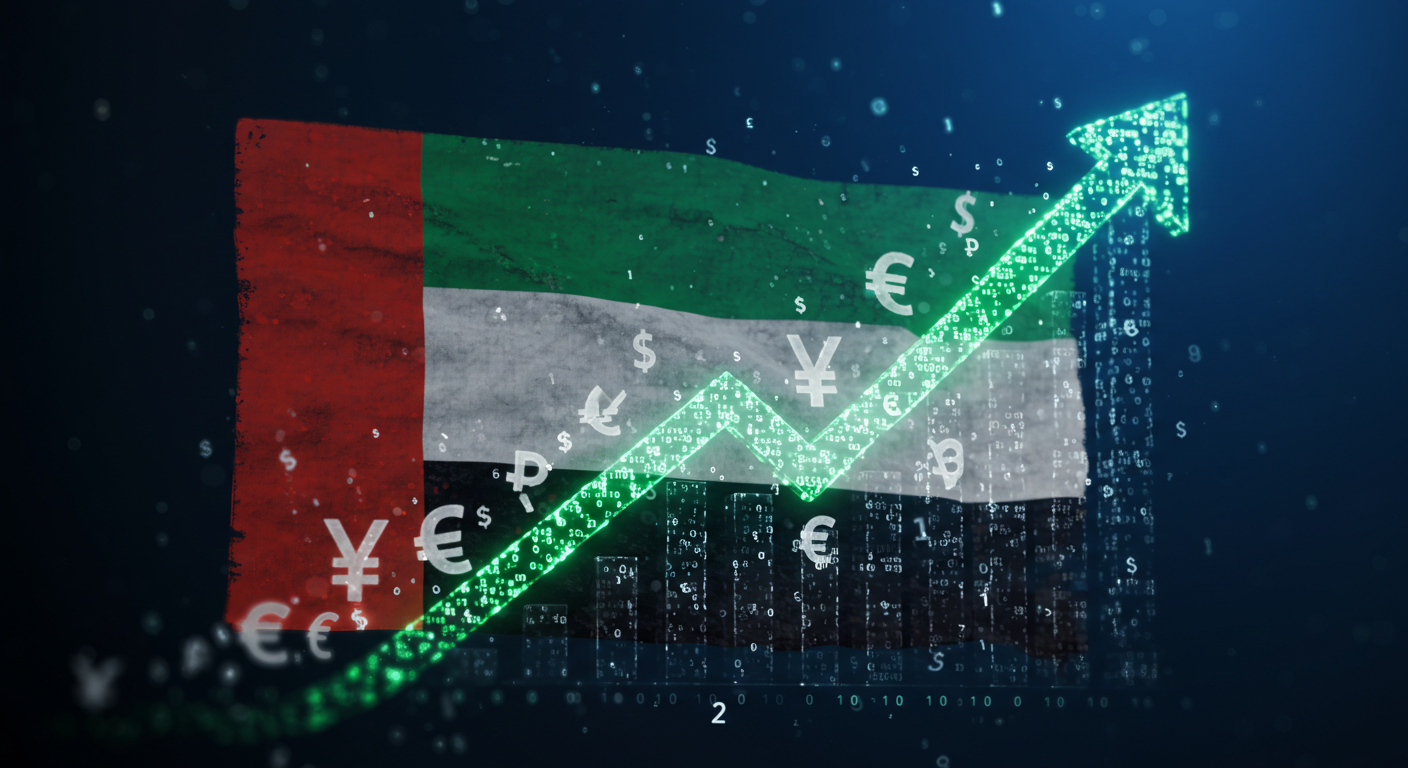Table of Contents
I. Executive Summary
The United Arab Emirates (UAE) has strategically positioned itself as a global hub for innovation and technological advancement, with a clear vision to build a diversified, knowledge-based economy. This ambition is strongly underpinned by a comprehensive framework of government resources designed to support the burgeoning technology sector. These resources span a wide spectrum, including substantial funding opportunities, the development of cutting-edge infrastructure, targeted talent development programs, and proactive regulatory assistance. Both federal and emirate-level government entities are actively involved in creating an environment conducive to the establishment and growth of technology companies. The UAE’s commitment to fostering a thriving tech ecosystem is evident in the numerous programs and initiatives aimed at attracting foreign direct investment, nurturing local talent, and driving innovation across various technological domains. Overall, the UAE presents a highly attractive and supportive landscape for technology companies seeking to establish, expand, and innovate within a dynamic and forward-looking economy.
II. The UAE Government’s Strategic Vision for the Technology Sector
The UAE’s commitment to the technology sector is deeply rooted in its overarching national development strategies. The UAE Vision 2021 laid the foundation for a shift towards a knowledge-based economy, recognizing the pivotal role of innovation and technology in achieving sustainable growth. Building upon this, the UAE Strategy for Artificial Intelligence 2031 articulates a clear ambition to position the nation as a world leader in AI by 2031 1. This long-term objective signals a sustained commitment from the government to prioritize and invest in AI-related technologies and companies. The extended timeline indicates a deep-seated national priority, ensuring continued policy focus and resource allocation towards the advancement of artificial intelligence.

Furthermore, the UAE’s Digital Economy Strategy sets a target to increase the digital economy’s contribution to the non-oil GDP from 12% to 20% by 2030 3. This ambitious goal underscores the government’s strong commitment to the broader digital sector, which inherently benefits a wide array of technology companies operating across different verticals. The explicit GDP target serves as a key driver for policy formulation and resource allocation aimed at accelerating digital transformation across the economy. Complementing these strategies is the Science, Technology and Innovation Policy, which was issued in 2024 and represents a pivotal step in achieving progress, economic diversification, and leadership 5. This policy provides the overarching framework for the government’s support in science and technology, thereby creating a supportive ecosystem for technology companies engaged in research and development. The STI policy outlines national priorities in areas such as solar energy, hydrogen production, health-related research, and digital technology, guiding investments and fostering an environment conducive to innovation.
A key priority for the UAE government is attracting foreign direct investment (FDI) into the technology sector 6. This active pursuit of international capital and expertise suggests a welcoming environment and the potential for specific incentives tailored to international technology companies looking to establish or expand their presence in the UAE. Government efforts to attract FDI often involve streamlining business setup processes, offering attractive tax regimes within free zones, and providing comprehensive support services. The government also places a strong emphasis on specific technology areas that are deemed critical for future growth and innovation. These include artificial intelligence, blockchain technology, the development of smart cities, advancements in cybersecurity, and the growth of advanced manufacturing 2. This targeted approach indicates that government resources and support programs are likely to be concentrated in these high-priority domains, offering greater opportunities for companies operating within these sectors.
III. Key Federal and Emirate-Level Government Bodies and Their Roles
At the federal level, several key government bodies play crucial roles in supporting the technology sector. The Ministry of Economy (MoEC) is the primary federal entity responsible for developing the overall economy of the UAE 11. Its mandate includes fostering investment opportunities, driving future economy initiatives, and promoting innovation across various sectors, including technology. The MoEC provides valuable resources for establishing businesses, attracting and retaining talent, and offers open data that can be instrumental for technology companies in conducting market research and analysis. The broad scope of the MoEC’s responsibilities ensures a holistic approach to economic development, creating a foundational support system for technology companies operating in the UAE.

The Ministry of Industry and Advanced Technology (MoIAT), established in July 2020, is specifically tasked with boosting the UAE’s industrial sector and increasing its contribution to the GDP through the adoption of advanced technologies 6. Key programs under MoIAT include the Technology Transformation Program (TTP) and the UAE Industry 4.0 initiative, which aim to accelerate the integration of advanced technologies within the industrial and manufacturing sectors. MoIAT offers a range of digital industry services, such as industrial licensing and conformity assessment, and also focuses on talent development through initiatives like Talent 4.0, which aims to build a skilled workforce for the future of industry. This ministry plays a direct and vital role in supporting the growth and technological advancement of the industrial sector, making it a key partner for technology companies providing solutions in areas like industrial digitalization and advanced manufacturing.
The Ministry of Finance (MoF) oversees the UAE’s financial policies and strategic direction, managing initiatives that can indirectly benefit the technology sector 19. Notably, the MoF administers the Mohammad bin Rashid Innovation Fund (MBRIF), which provides financial support to innovative startups. The MoF also emphasizes digital participation and the availability of open data, contributing to a more transparent and accessible business environment for technology companies. By providing financial backing for innovation through MBRIF and promoting digital transformation, the MoF indirectly supports the growth and development of the technology ecosystem.
At the emirate level, key entities in Abu Dhabi and Dubai play significant roles in supporting the technology sector. The Abu Dhabi Department of Economic Development (ADDED) is responsible for promoting and supporting the economic development of the Abu Dhabi emirate 11. ADDED offers various programs and initiatives designed to attract investment and provide comprehensive support to businesses, including those in the technology sector. It serves as the primary point of contact for technology companies looking to establish or expand their operations in Abu Dhabi, handling local licensing, regulations, and implementing economic development strategies.
In Dubai, the Department of Economy and Tourism (DET), formerly known as the Department of Economic Development (DED), sets and drives the economic agenda of the emirate 11. DET actively supports the structural transformation of Dubai into a diversified, innovative, service-based economy, with a strong focus on technology. It provides essential services for business registration, licensing, and trademark protection, and also oversees funding and development initiatives for SMEs and efforts to attract foreign direct investment. DET is central to Dubai’s economic ecosystem and offers crucial support for technology companies operating within the emirate.
Digital Dubai is another key entity in Dubai, committed to transforming the emirate into a leading smart city 23. It operates various programs specifically designed to support startups, particularly those working with emerging technologies such as blockchain and artificial intelligence. Digital Dubai plays a vital role in fostering innovation and supporting technology startups that align with Dubai’s vision of becoming a technologically advanced and digitally connected city. Its focus on cutting-edge technologies makes it a valuable resource for companies operating in these fields.
IV. Comprehensive Overview of Government Support Programs and Initiatives
The UAE government has launched a multitude of programs and initiatives to specifically support the growth and development of the technology sector. The Technology Transformation Program (TTP), spearheaded by MoIAT, aims to accelerate technological transformation within the industrial and manufacturing sectors 13. Key components of the TTP include the Industrial Technology Transformation Index (ITTI), which assesses digital maturity; Transform 4.0, a program launched to further accelerate this transformation; and the Technology Transformation Incentive Scheme, offering various incentives to encourage adoption. This program presents significant opportunities for technology companies that provide solutions for industrial digitalization, automation, and advanced manufacturing processes.

The UAE Industry 4.0 initiative, also driven by MoIAT, seeks to accelerate the digital transformation of the industrial sector, enhance its productivity, and create thousands of new, highly skilled jobs 18. A key element of this initiative is the Talent 4.0 program, which offers a range of training programs designed to raise awareness about the benefits of Industry 4.0 technologies and develop the workforce of the future. This initiative directly supports the integration of advanced technologies in industry, creating a demand for technology providers and a need for a skilled workforce capable of implementing and managing these technologies.
Dubai Future Accelerators (DFA) serves as a crucial bridge between technology companies and both government and private sector organizations, facilitating the creation of transformational solutions 23. DFA provides grants, fosters partnerships, and offers essential resources to startups that are focused on developing innovative solutions to address real-world challenges. This program offers a unique platform for technology startups to collaborate with key entities in the UAE and gain access to funding to further develop and implement their groundbreaking ideas.
The Mohammed bin Rashid Innovation Fund (MBRIF), managed by the Ministry of Finance, plays a vital role in providing financial support to innovative startups and SMEs operating within the UAE 19. MBRIF specifically targets projects that offer unique and innovative technological solutions across various sectors. This fund represents a key source of capital for technology startups and SMEs that have the potential to drive innovation and contribute to the UAE’s knowledge-based economy.
Dubai SME offers a comprehensive suite of programs designed to support small and medium-sized enterprises, including those in the technology sector 24. These programs include various funding options, tailored training initiatives, and extensive support for business setup and growth. Notable programs under Dubai SME include the Intelaq program, which provides full support to startups and Emiratis throughout the process of setting up a business in Dubai, and the Hamdan Innovation Incubator (HI2), which offers both hardware and software support to nurture innovative ventures. Dubai SME’s multifaceted support system is crucial for the development and scaling of small and medium-sized technology companies in the region.
The Entrepreneurial Nation Platform, an initiative by the UAE Ministry of Economy, aims to create a new economic phase centered on innovation and the empowerment of entrepreneurship, startups, and SMEs 26. This platform fosters partnerships between the government and private sectors to provide essential resources and support to entrepreneurs. It includes initiatives such as AWS Connected Community, which assists startups in adopting cloud computing solutions, and the Huawei Cloud Startup Program, offering cloud resources, funding, and technical support for those investing in startups. This platform facilitates access to critical technologies and financial assistance for technology entrepreneurs, particularly in the rapidly growing area of cloud computing.
Digital Dubai has launched several key initiatives aimed at transforming Dubai into a smart and technologically advanced city 23. These include the Global Blockchain Challenge, which invites blockchain startups from around the world to showcase their innovations; the Dubai Smart City Accelerator, supporting innovative companies in areas like IoT, AI, and blockchain; and the Dubai Future Accelerators program, which connects technology companies with government organizations to develop cutting-edge solutions. These initiatives actively support startups and foster innovation in emerging technologies that are vital for the development of smart city infrastructure and services.
Beyond these major programs, several other notable initiatives exist across the UAE. The Abu Dhabi Investment Office (ADIO) offers various initiatives to support startups in Abu Dhabi, with a focus on innovation and social impact 24. The Khalifa Fund for Enterprise Development provides interest-free loans and business development support specifically for UAE Nationals with viable business ideas 27. The Sharjah Entrepreneurship Center (Sheraa) supports early-stage ventures based in or willing to relocate to Sharjah 24. Additionally, the Innovation Impact Grant Programme (IIGP) provides funding to innovative startups that contribute to the diversification of Abu Dhabi’s economy 29. These diverse programs across the Emirates demonstrate a widespread commitment to nurturing and supporting the growth of technology companies.
V. Navigating Funding Opportunities and Financial Incentives
Technology companies in the UAE have access to a variety of funding opportunities and financial incentives provided by the government and related entities. Government grants are a significant source of non-dilutive funding, offered by organizations such as Dubai SME, the Abu Dhabi Investment Office (ADIO), the Mohammad bin Rashid Innovation Fund (MBRIF), and the Innovation Impact Grant Programme (IIGP) 24. Each of these grant programs has specific eligibility criteria and focuses on different aspects of innovation and business development, requiring technology companies to carefully research and align their applications with the objectives of the respective programs.
The venture capital and seed funding landscape in the UAE is also being actively supported by government initiatives. Funds like the Dubai Future District Fund, launched in 2020 with a substantial capital of US$272 million, aim to support and grow the startups of the future 25. This injection of capital into the venture ecosystem increases the availability of funding for high-growth technology startups seeking to scale their operations.
The UAE offers a highly attractive tax environment for businesses, including technology companies. Notably, there is no personal income tax, and the corporate tax rate, introduced in 2023, is a relatively low 9% on taxable profits exceeding AED 375,000 33. However, the most significant tax advantages are often found within the UAE’s numerous free zones. Many free zones offer the potential for a 0% corporate tax rate on qualifying income for eligible businesses 33. This can be a substantial benefit for technology companies, especially those with international operations or those focused on specific qualifying activities within the free zone. To maintain this exemption, businesses typically need to demonstrate a local presence, submit audited financials, and adhere to transfer pricing laws. Beyond corporate tax benefits, free zones also often offer incentives such as no capital gains tax and the ability to fully repatriate profits without restrictions 33. Furthermore, there are potential research and development (R&D) incentives for technology and biotech startups, which may include tax relief on expenses related to employee wages, materials, and equipment 34.
| Program Name | Funding Type | Target Audience | Key Features |
| Mohammed Bin Rashid Fund for SME | Loans, Equity | Emirati founders/co-founders (SMEs) | Finances innovative startups and SMEs |
| Future District Fund | Venture Capital | Startups | Seed-to-growth fund for future-focused startups |
| Dubai Future Accelerators (DFA) | Grants, Resources | Emerging enterprises | Connects startups with organizations to solve specific challenges |
| Dubai SME Support Programmes | Loans, Support | UAE Nationals (SMEs) | Business scale-up support and various funding options |
| DIFC Fintech Fund | Venture Capital | Fintech Startups | Accelerates fintech development in the MEASA region |
| Abu Dhabi Investment Office (ADIO) Initiatives | Grants, Incentives | Startups in Abu Dhabi (Innovation-focused) | Financial incentives and support for startups aligning with Abu Dhabi’s growth strategy |
| Innovation Impact Grant Programme (IIGP) | Grants | Innovative Startups in Abu Dhabi | Funds startups diversifying Abu Dhabi’s economy |
| Khalifa Fund for Enterprise Development | Interest-free Loans, Support | UAE Nationals with viable business ideas | Focuses on innovation and sustainability, priority for technology, agriculture, and renewable energy sectors |
VI. Understanding Business Registration, Licensing, and the Legal Landscape for Tech Companies
Establishing a technology company in the UAE requires navigating the business registration and licensing processes, which can differ depending on whether the company chooses to set up on the mainland or within one of the numerous free zones 37. On the mainland, the primary authority for business registration is the Department of Economy and Tourism (DET) in Dubai, and similar departments in other Emirates 20. The process typically involves obtaining initial approval, reserving a company name, applying for a trade license, and registering with the UAE Chamber of Commerce.
Setting up within a free zone offers several compelling advantages for technology companies, including 100% foreign ownership, significant tax exemptions (as discussed in the previous section), and often simplified business setup processes 26. The UAE boasts a wide array of free zones, with several specifically catering to the needs of technology companies. Popular options include Dubai Internet City (DIC), which hosts a large community of technology firms, Dubai Silicon Oasis (DSO), an innovation district focused on emerging technologies, and Sharjah Media City (Shams), which attracts companies in creative industries and technology 26. These free zones have developed ecosystems that specifically support the growth of technology businesses, offering specialized infrastructure, activity-specific licensing, and valuable networking opportunities.
The choice between setting up on the mainland or in a free zone often depends on the technology company’s specific business model and target market 39. Mainland companies have direct access to the local UAE market and can engage in business activities across the country without restrictions. In contrast, free zone entities are generally geared towards operating within the free zone jurisdiction and targeting international markets, although they can often engage with the mainland market through distributors or agents.
The legal framework in the UAE is also relevant to technology companies. The Industrial Property Law provides protection for patents, utility certificates, and industrial designs, as well as trademarks 32. This legal framework is crucial for safeguarding the intellectual property of technology companies and fostering innovation. Furthermore, technology companies handling data need to be aware of and comply with data protection and cybersecurity regulations in the UAE 3. These regulations aim to create a safe and secure digital environment and ensure the protection of sensitive information.
VII. Government Support for Research, Development, and Innovation in Technology
The UAE government places a strong emphasis on supporting research, development, and innovation (R&D) within the technology sector. The Science, Technology and Innovation Policy, as mentioned earlier, provides a strategic roadmap for advancing R&D across various fields 5. Additionally, the Dubai Research, Development and Innovation Program (Dubai RDI) outlines Dubai’s top priorities in R&D, including areas such as artificial intelligence, environmental technology, smart built infrastructure, and space and augmented human-machine intelligence 44. This program demonstrates a specific focus on fostering innovation within the emirate of Dubai.
Funding and grants specifically targeted towards research in technology are available through various channels. The Dubai RDI Grant Initiative offers competitive funding to R&D endeavors in Dubai, aiming to bolster the emirate’s existing R&D framework and attract top-tier researchers 44. Furthermore, universities in the UAE, such as UAE University and Khalifa University, offer various research grants to faculty and students, which can support research projects in technology-related fields 46. These academic institutions serve as important hubs for research and can be potential sources of funding and collaboration for technology companies engaged in R&D.
Innovation hubs and parks play a crucial role in fostering research and development in the UAE’s technology ecosystem. Dubai Science Park is the first free zone in the Middle East dedicated to the science sector, housing numerous companies involved in scientific research 42. The Sharjah Research Technology and Innovation Park (SRTI Park) focuses on promoting research and innovation in key areas like healthcare, energy, environment, and technology, offering facilities and programs to support these activities 48. These dedicated parks provide specialized environments with the necessary infrastructure and resources to facilitate technological advancements. Moreover, various innovation centers and incubators located within free zones and on the mainland offer mentorship, resources, and sometimes seed funding for early-stage technology ventures, playing a vital role in nurturing startups and accelerating the commercialization of innovative ideas 25.
VIII. Leveraging Technology Parks, Free Zones, and Innovation Hubs
The UAE offers a well-developed ecosystem of technology parks, free zones, and innovation hubs that provide tailored resources and environments for technology companies. Dubai Science Park stands out as the first free zone in the Middle East specifically dedicated to meeting the needs of the science sector 42. Located in Al Barsha South, it houses hundreds of companies, ranging from entrepreneurs to multinational corporations, employing thousands of scientific professionals. The park offers first-rate office spaces and laboratories, fostering scientific research, creativity, and modernization. Its focus makes it particularly attractive for biotech, pharmaceutical, and other science-related technology companies seeking a specialized ecosystem.

Sharjah Research Technology and Innovation Park (SRTI Park), established in 2016, aims to promote research, technology, and innovation across various fields, including healthcare, energy, environment, and technology 48. SRTI Park provides a collaborative platform for academic institutions, businesses, and government agencies to work together, offering facilities such as cutting-edge laboratories, R&D facilities, a maker space for prototyping, and an additive manufacturing hub. It also provides business licensing services, access to a talent pool, and various entrepreneurial programs, making it a comprehensive innovation ecosystem for a wide range of technology sectors in Sharjah.
Dubai Silicon Oasis (DSO) is a unique free zone that functions as an integrated technology park and urban community 26. It houses hundreds of technology startups, R&D labs, and manufacturing units, with a strong focus on emerging technologies like AI, software, robotics, and hardware. DSO offers tech-friendly policies, state-of-the-art infrastructure, and flexible office spaces, creating a future-ready environment for companies in these advanced technology fields. Its integrated live-and-work environment provides added convenience and can contribute to a more streamlined operational setup.
Dubai Internet City (DIC) is a well-established hub for technology companies, attracting both global giants and innovative startups 26. As a free zone, DIC offers a wide range of licenses and facilities tailored to the needs of technology businesses, including software development, IT consultancy, and cloud computing. Its long history and large community of tech companies provide significant networking opportunities and access to a diverse talent pool.
Beyond these prominent examples, other free zones and hubs also cater to specific technology niches. Dubai Multi Commodities Centre (DMCC) is suitable for startups focusing on commodities trading, technology, or services 40. Sharjah Media City (Shams) is a popular choice for startups in creative industries, media, and technology, offering flexible office spaces and affordable pricing 40. For fintech companies, Abu Dhabi Global Market (ADGM) and Dubai International Financial Centre (DIFC) provide robust regulatory environments and fintech-focused initiatives 39. Finally, National Industries Park (formerly Dubai Techno Park) caters to industrial technology companies, offering leaseable land zones and proximity to key logistics infrastructure 49.
IX. Developing and Retaining Tech Talent: Government Programs and Support
Recognizing the critical role of skilled human capital in the growth of the technology sector, the UAE government has implemented various programs and initiatives aimed at developing and retaining tech talent. The UAE has unveiled plans for a new phase in its strategy to attract and retain top talent from around the world, with a focus on key technology sectors such as artificial intelligence, blockchain, and smart cities 9. This initiative includes expanding the eligibility for the “Golden Visa,” which grants long-term residency to highly skilled professionals, investors, and entrepreneurs, providing a clear pathway to stability and security for talented individuals seeking to contribute to the UAE’s economy.
The government also supports the development of local talent through various online training platforms. DGOV Academy offers a variety of courses designed for diverse audiences, including short courses for the public and advanced programs for specialists in government and the private sector, with many courses available in both English and Arabic 52. The Future Skills programme is a 12-month training initiative targeting students, employees, and others looking to enter technology-based jobs, offering specialized courses, workshops, and networking opportunities. Furthermore, the National Program for Artificial Intelligence has partnered with companies like Dell EMC to train Emirati students in AI through internship programs, aiming to bridge the skills gap in the technology sector. The One Million Arab Coders initiative, the largest of its kind in the Arab world, aims to empower young Arabs with essential coding skills required for the future labor market.
At the emirate level, entities like the Department of Government Enablement in Abu Dhabi offer training and development programs for government employees, enhancing their skills and knowledge 53. These programs cover a wide range of competencies and include specialized programs focused on areas relevant to the technology sector. Additionally, within the framework of the UAE Industry 4.0 initiative, MoIAT offers the Talent 4.0 program, which provides training programs to raise awareness about the benefits of adopting Industry 4.0 technologies and develop the workforce needed for this technological shift 18. This program focuses on understanding key Industry 4.0 concepts, recognizing business opportunities, and ultimately developing a workforce capable of driving the UAE’s industrial sector towards becoming a leading supplier of 4IR solutions.
X. Facilitating International Collaboration and Attracting Foreign Tech Investment
The UAE government actively facilitates international collaboration and implements policies designed to attract foreign tech investment. The country offers a highly attractive tax regime, including the absence of personal income tax and a low corporate tax rate, coupled with the advantage of 100% foreign ownership in free zones and no restrictions on the repatriation of profits 7. These incentives significantly reduce operational costs and enhance the potential returns for foreign investors in the technology sector.

The UAE is also actively forging strategic international partnerships to advance its technological capabilities. A notable example is the growing cooperation between the UAE and the United States in the field of artificial intelligence, which includes significant investments and the launch of joint initiatives such as the Responsible AI Foundation 8. These collaborations provide access to global expertise, cutting-edge research, and international markets, further strengthening the UAE’s position as a global technology hub. The ‘Entrepreneurial Nation’ initiative by the Ministry of Economy also aims to foster partnerships between the government and private sectors, creating a supportive ecosystem for entrepreneurship and innovation 32.
The UAE’s overarching ambition is to become a global leader in artificial intelligence and a major technology hub, a vision supported by continuous government investment, strategic policies, and a strong focus on research and development 1. This proactive and forward-looking approach makes the UAE an increasingly attractive location for technology companies seeking growth, innovation, and global reach within a dynamic and supportive environment. The government’s clear commitment to the technology sector signals a long-term focus, providing stability and confidence for both domestic and international technology businesses.
XI. Frequently Asked Questions (FAQs)
How to get government funding for a tech startup in the UAE?
To secure government funding, tech startups should research and apply to programs like the Mohammed bin Rashid Innovation Fund (MBRIF), Dubai SME initiatives, Abu Dhabi Investment Office (ADIO) programs, and the Innovation Impact Grant Programme (IIGP). Crafting a strong pitch deck, aligning with national strategic objectives (like sustainability and innovation), and networking at startup events are crucial steps 24.
What are the best government programs for tech companies in Dubai?
Some of the best programs in Dubai include Dubai Future Accelerators (DFA), which connects startups with government entities; Dubai SME, offering funding and support to SMEs; the Dubai Future District Fund, providing venture capital; and Digital Dubai initiatives supporting startups in emerging technologies like blockchain and AI 23.
Where to find grants for tech research in the UAE?
Grants for tech research can be found through the Dubai RDI Grant Initiative, universities like UAE University and Khalifa University, and potentially through specific programs offered by technology parks like SRTI Park. The UAE Research Map (uaeresearchmap.ae) also lists various funding opportunities 44.
XII. MSK Legal Translation UAE: Your Partner in Navigating Government Resources
Navigating the landscape of government resources and legal documentation in the UAE can be complex for technology companies. MSK Legal Translation UAE is a leading provider of certified translation services, offering expert assistance to businesses operating within the UAE. Accurate and certified translations are often essential when dealing with government ministries, departments, and legal frameworks. MSK Legal Translation UAE specializes in handling various types of documents that technology companies might encounter, including business licenses, contracts, intellectual property filings, financial statements, and regulatory compliance documents. Their commitment to providing high-quality, reliable, and timely translation services ensures that technology companies can effectively navigate the complexities of the UAE’s legal and administrative landscape, facilitating smooth communication and compliance with all necessary requirements.
XIII. Conclusion and Recommendations
The UAE government has demonstrated a strong and unwavering commitment to fostering a thriving technology sector, evident through a comprehensive array of resources and support mechanisms available at both federal and emirate levels. These resources encompass diverse areas such as funding opportunities through grants and venture capital, the development of specialized infrastructure within technology parks and free zones, targeted programs for talent development and retention, and a proactive approach to facilitating international collaboration and attracting foreign investment.
For technology companies looking to leverage these resources effectively, several strategic recommendations can be made. Firstly, conducting thorough research to identify the most relevant programs, initiatives, and incentives that align with their specific business needs and growth objectives is crucial. Engaging directly with the appropriate government bodies at both the federal and emirate levels can provide valuable insights and guidance on navigating the application processes and eligibility criteria for various support schemes. Secondly, carefully considering the advantages of establishing operations within specialized technology parks and free zones, which offer tailored ecosystems, infrastructure, and regulatory benefits, can significantly enhance a company’s growth potential. Thirdly, actively exploring the multitude of funding opportunities available, including both non-dilutive grants and venture capital investments, is essential for securing the financial resources needed for innovation and expansion. Investing in talent development and leveraging government programs aimed at upskilling the workforce can help companies build a strong and capable team. Finally, a thorough understanding of and adherence to the relevant legal and regulatory frameworks is paramount for ensuring compliance and sustainable growth within the UAE’s business environment. Seeking professional support, such as the certified translation services offered by MSK Legal Translation UAE, can be invaluable in navigating the complexities of legal and administrative processes.
In conclusion, the UAE presents a dynamic and highly supportive environment for technology companies. The government’s clear vision and continuous investment in the sector create a wealth of opportunities for innovative companies to establish, grow, and contribute to the UAE’s journey towards becoming a leading global technology hub.
For more details, go to Dubai Tech page..
You can find relevant data within Dubai by browsing Dubai Digital..
Works cited
1. The UAE’s technology ambitions – The International Institute for Strategic Studies, accessed March 25, 2025, https://www.iiss.org/publications/strategic-comments/2024/10/the-uaes-technology-ambitions/
2. The UAE’s Big AI Leap: How Artificial Intelligence is – UAE Stories, accessed March 25, 2025, https://uaestories.com/the-uaes-big-ai-leap-how-artificial-intelligence/
3. United Arab Emirates – Digital Economy – International Trade Administration, accessed March 25, 2025, https://www.trade.gov/country-commercial-guides/united-arab-emirates-digital-economy
4. UAE digital economy strategy fuels tech transformation – TR – Legal Insight MENA, accessed March 25, 2025, https://insight.thomsonreuters.com/mena/legal/posts/uae-digital-economy-strategy-fuels-tech-transformation
5. The Science, Technology and Innovation Policy – United Arab …, accessed March 25, 2025, https://www.uaelegislation.gov.ae/en/policy/details/science-technology-and-innovation-policy
6. Ministry of Industry and Advanced Technology (United Arab Emirates) – Wikipedia, accessed March 25, 2025, https://en.wikipedia.org/wiki/Ministry_of_Industry_and_Advanced_Technology_(United_Arab_Emirates)
7. 2023 Investment Climate Statements: United Arab Emirates – Department of State, accessed March 25, 2025, https://www.state.gov/reports/2023-investment-climate-statements/uae/
8. The UAE and US: Forging the Future of AI and Advanced Tech, accessed March 25, 2025, https://www.uae-embassy.org/uae-us-cooperation/economic/artificial-intelligence
9. UAE Unveils New Talent Drive to Boost Key Sectors, accessed March 25, 2025, https://uaestories.com/uae-unveils-new-talent-drive-to-boost-key-sectors/
10. UAE’s Technology Boom: Government Support and Foreign Investments Driving Growth, accessed March 25, 2025, https://uaestories.com/uaes-technology-boom-government-support-and/
11. Entities responsible for economic activities | The Official Portal of the …, accessed March 25, 2025, https://u.ae/en/about-the-uae/economy/entities-responsible-for-economic-activities–
12. Home | Ministry of Economy – UAE, accessed March 25, 2025, https://www.moec.gov.ae/en/home
13. Ministry of Industry and Advanced Technology, accessed March 25, 2025, https://moiat.gov.ae/en/
14. Ministry of Industry and Advanced Technology (MoIAT) (United Arab Emirates) – Devex, accessed March 25, 2025, https://www.devex.com/organizations/ministry-of-industry-and-advanced-technology-moiat-united-arab-emirates-212023
15. Ministry of Industry and Advanced Technology – Products, Competitors, Financials, Employees, Headquarters Locations – CB Insights, accessed March 25, 2025, https://www.cbinsights.com/company/ministry-of-industry-and-advanced-technology
16. Ministry of Industry and Advanced Technology (MoIAT) – Member Body | IECRE, accessed March 25, 2025, https://www.iecre.org/members/member-bodies/ministry-industry-and-advanced-technology-moiat
17. Technology Transformation Program – MOIAT, accessed March 25, 2025, https://moiat.gov.ae/en/programs/ttp
18. UAE Industry 4.0, accessed March 25, 2025, https://qc.moiat.gov.ae/en/the-fourth-industrial-revolution-program
19. The Minister – Ministry of Finance – United Arab Emirates, accessed March 25, 2025, https://mof.gov.ae/ministry-of-finance-menu/the-minister/
20. Government entities | The Official Portal of the UAE Government, accessed March 25, 2025, https://u.ae/en/help/contact-us/the-government.
21. Organisation – Department of Dubai Economic Development (DED), accessed March 25, 2025, https://www.dubaipulse.gov.ae/organisation/ded
22. Department of Economic Development (Dubai) – Wikipedia, accessed March 25, 2025, https://en.wikipedia.org/wiki/Department_of_Economic_Development_(Dubai)
23. Dubai Startup Support, accessed March 25, 2025, https://www.digitaldubai.ae/initiatives/startup-support
24. How to Secure Startup Funding in UAE: 5 Proven Strategies – Prateek Tosniwal, accessed March 25, 2025, https://prateektosniwal.com/secure-startup-funding-in-uae/
25. Support for start-ups and SMEs – Invest in Dubai, accessed March 25, 2025, https://www.investindubai.gov.ae/en/business-setup/support-for-start-ups-and-smes
26. Top Government Programs to Help Your Business Grow – Chris Elliott, accessed March 25, 2025, https://chriselliottgroup.com/top-government-programs-to-help-your-business-grow/
27. Grants and Funding Opportunities for Small Businesses in the UAE – Reddit, accessed March 25, 2025, https://www.reddit.com/r/SmallBusinessUAE/comments/1hu7nzr/grants_and_funding_opportunities_for_small/
28. UAE’s Push for AI and Innovation: Grants and Support for Tech …, accessed March 25, 2025, https://www.planmyfirm.com/blog/uaes-push-for-ai-and-innovation-grants-and-support-for-tech-startups
29. Government Grants for Startups: Securing Funding in Abu Dhabi, accessed March 25, 2025, https://internationalinvestorsummit.com/government-grants-for-startup/
30. ITQAN – Government grants for startups, accessed March 25, 2025, https://startupsgovernmentgrants.com/en/
31. Top 5 Startups Funding Programs in the UAE – Decisive Zone, accessed March 25, 2025, https://www.decisivezone.ae/top-5-startups-funding-programs-in-the-uae/
32. UAE highlights new investment incentives & opportunities in its vital …, accessed March 25, 2025, https://www.moec.gov.ae/en/-/uae-highlights-new-investment-incentives-opportunities-in-its-vital-sectors-in-light-of-projects-of-the-50-?p_l_back_url=%2Fen%2Ftest1%3Fcategory%3D752020%26category%3D434799%26category%3D101585%26tag%3D2018%26delta%3D20%26start%3D6
33. Incentives for Doing Business in UAE – Middle East Briefing, accessed March 25, 2025, https://www.middleeastbriefing.com/doing-business-guide/uae/why-uae/doing-business-in-uae-incentives
34. Unlocking Corporate Tax Benefits in UAE for Tech startups & Innovation driven businesses | JAXA, Auditing Company in Dubai, UAE – JAXA Chartered Accountants, accessed March 25, 2025, https://www.jaxaauditors.com/blog/unlocking-corporate-tax-benefits-in-uae-for-tech-startups-innovation-driven-businesses/
35. Corporate Tax Benefits for Free Zone in the UAE, accessed March 25, 2025, https://www.reyson.ae/blog-detail/corporate-tax-benefits-for-free-zone-in-the-uae
36. UAE Corporate Tax: Are UAE Free Zone Companies Tax-Free? – Nomad Capitalist, accessed March 25, 2025, https://nomadcapitalist.com/finance/are-uae-free-zone-companies-still-tax-free/
37. The United Arab Emirates: Understanding the Free Zone and Mainland, accessed March 25, 2025, https://resources.envoyglobal.com/global-immigration-compass/the-united-arab-emirates-understanding-the-freezone/
38. UAE Investment FAQs for Foreign Investors: Your Guide to Opportunities, accessed March 25, 2025, https://www.investuae.gov.ae/faq
39. UAE Free Zones Vs. Mainland For Software Development Firms, accessed March 25, 2025, https://www.creationbc.com/news/evaluating-uae-free-zones-mainland-for-software-development-firms/
40. Best Free Zones in UAE: Our Top 10 Picks for Businesses – CE Interim, accessed March 25, 2025, https://ceinterim.com/best-free-zones-in-uae/
41. Why Startups Prefer Free Zones in the UAE – Programming Insider, accessed March 25, 2025, https://programminginsider.com/why-startups-prefer-free-zones-in-the-uae/
42. Dubai Science Park | Ministry of Economy – UAE, accessed March 25, 2025, https://www.moec.gov.ae/en/-/dubai-science-park?p_l_back_url=%2Ffree-zones
43. The Best Free Zones for Startups in the UAE: Unlocking Opportunities for Entrepreneurs and Growing Businesses | Finanshels Resources, accessed March 25, 2025, https://www.finanshels.com/blog/the-best-free-zones-for-startups-in-the-uae
44. Funding Opportunities – UAE Research Map, accessed March 25, 2025, https://uaeresearchmap.ae/funding
45. Dubai Research, Development and Innovation Program – Dubai Research, Development and Innovation Program, accessed March 25, 2025, https://dubairdi.ae/
46. Research Grants Opportunities, accessed March 25, 2025, https://www.uaeu.ac.ae/en/research/research-and-sponsored-projects-office/research-grants-opportunities.shtml
47. Funding programs – Khalifa University, accessed March 25, 2025, https://www.ku.ac.ae/office-of-research-services/university-sponsored-research/funding-programs
48. Sharjah Research Technology and Innovation Park Official Website, accessed March 25, 2025, https://srtip.ae/
49. National Industries Park – Wikipedia, accessed March 25, 2025, https://en.wikipedia.org/wiki/National_Industries_Park
50. Technology Park Area Guide and Locality Overview | RGEstate UAE, accessed March 25, 2025, https://www.rgestate.com/area-guides/technology-park
51. UAE A Leading Global Tech Hub and Educational Gateway for Future Innovators – Demont, accessed March 25, 2025, https://www.demont.ac.ae/blogs/uae-a-leading-global-tech-hub-and-educational-gateway-for-future-innovators/
52. Online training | The Official Portal of the UAE Government, accessed March 25, 2025, https://u.ae/en/information-and-services/jobs/training-and-development/online-training
53. Gov Academy – Department of Government Enablement, accessed March 25, 2025, https://www.dge.gov.ae/en/what-we-do/programs
54. The United Arab Emirates’ AI Ambitions – CSIS, accessed March 25, 2025, https://www.csis.org/analysis/united-arab-emirates-ai-ambitions


Leave a Reply